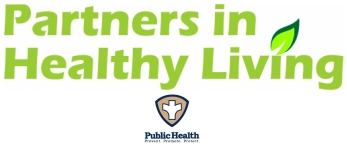
Healthier kids not only have better attendance, they also do better on tests.
There are many opportunities to incorporate healthy eating and active living into a typical school day. Partners in Healthy Living offers technical assistance to school partners through the support of a school wellness committee.
By layering our Schools and our Community Healthy Food partners together, they can gain knowledge, opportunity and networking ability to enhance the systems change of local food hubs. Schools are encouraged to increase their farm to school offerings and garden/orchards. This will increase access to fruits and vegetables for the student population.
Increasing physical activity both during and outside the school day assists students to meet the national guidelines of 60 minutes or more a day.
MN EATS
- Increase fruit and vegetables, decreased sodium, saturated fat, and added sugars in foods/beverages
- School food and beverage restrictions, healthy vending, school fundraiser restrictions, farm to school, school-based agriculture curriculum, smarter lunch rooms, staff role modeling, healthy celebration
MN MOVES
- Increasing opportunities for physical activity during an outside of the school day
- Quality physical education (policies and environment, curriculum review, appropriate instruction and assessment), active recess, active classrooms, safe roads to school, integrated physical activity into homework
 MN COMMERCIAL TOBACCO FREE
MN COMMERCIAL TOBACCO FREE
- Adoption of an updated comprehensive model policy, implement new or enhanced current commercial tobacco prevention curriculum, promotion of youth focused cessation resources, such as “My Life, My Quit”, and “This is Quitting”, and implementation of referral process to youth focus cessation resources
MN WELL-BEING
- Social and emotional school climate through positive behavior interventions and supports, school-based social emotional learning (SEL) programs, and mindfulness exercises
- Trauma-informed knowledge and skills through adverse childhood experiences (ACE’s), Trauma-informed schools, and school-based trauma counseling

You must be logged in to post a comment.